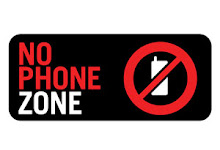What would you do if you had the hour back that we lost this morning ? What do you feel you would use that time on ? Another hour of sleep, watching a movie, cleaning the house, making a project, working on your blog ?? What could you do in an hour ????
The story on Spring it forward..
The phrase "Spring forward, Fall back" helps people remember how Daylight Saving Time affects their clocks. At 2 a.m. on the second Sunday in March, we set our clocks forward one hour ahead of Standard Time ("Spring forward"). We "Fall back" at 2 a.m. on the first Sunday in November by setting our clock back one hour and thus returning to Standard Time.
The change to Daylight Saving Time allows us to use less energy in lighting our homes by taking advantage of the longer and later daylight hours. During the eight-month period of Daylight Saving Time, the names of time in each of the time zones in the U.S. (map) change as well. Eastern Standard Time (EST) becomes Eastern Daylight Time, Central Standard Time (CST) becomes Central Daylight Time (CDT), Mountain Standard Time (MST) becomes Mountain Daylight Time (MDT), Pacific Standard Time becomes Pacific Daylight Time (PDT), and so forth.
Daylight Saving Time was instituted in the United States during World War I in order to save energy for war production by taking advantage of the later hours of daylight between April and October. During World War II the federal government again required the states to observe the time change. Between the wars and after World War II, states and communities chose whether or not to observe Daylight Saving Time. In 1966, Congress passed the Uniform Time Act, which standardized the length of Daylight Saving Time.
Daylight Saving Time is four weeks longer since 2007 due to the passage of the Energy Policy Act in 2005. The Act extended Daylight Saving Time by four weeks from the second Sunday of March to the first Sunday of November, with the hope that it would save 10,000 barrels of oil each day through reduced use of power by businesses during daylight hours. Unfortunately, it is exceedingly difficult to determine energy savings from Daylight Saving Time and based on a variety of factors, it is possible that little or no energy is saved by Daylight Saving Time.
Arizona (except some Indian Reservations), Hawaii, Puerto Rico, the U.S. Virgin Islands, and American Samoa have chosen not to observe Daylight Saving Time. This choice does make sense for the areas closer to the equator because the days are more consistent in length throughout the year.
Sunday, March 14, 2010
Subscribe to:
Post Comments (Atom)














.jpg)








































































Thanks for the information on Daylight Saving time. I always have a hard time when the time changes, it seems to take my body weeks to adjust I really wish they would just leave it alone now. I could see the need for it back in time, although I just do not see the need for it now
ReplyDeletehugs sassy gail of thesassybeach.com
Nice post. very informative.
ReplyDeleteMarie
It does take a little time to adjust.
ReplyDeleteHi Kath,, Wow, I am glad I am in AZ,, thats alot to know! LOL But I really love not changing times, but i have to be careful, I just called my friend in NYC and it was 10:30pm now instead of 9:30. Aggh
ReplyDeleteHave a great week,, (()) gail
Thanks for sharing the interesting info, Kath!
ReplyDeleteMary Patterson
Mary's Cottage Treasures
I understand why, but if it was up to me... I'd just leave it the way nature intended it to be. Hugs, Tedi
ReplyDeletewww.PetiteBookstore.com/blog
Gosh, that is a lot to know. I can never remember if I'm saying that right. So glad the time change is always on Saturday night - seems Sunday morning is more forgiving.
ReplyDeleteNever mind the Spring forward hate the Fall back as always takes weeks to adjust to sleeping, to my brain an hour longer.
ReplyDeleteKath
ReplyDeleteThanks for the very informative post!
I want my hour back.
Lisa
http://www.palepinkandroses.typepad.com
Hi Kath!
ReplyDeleteThanks for the information! I only know this too well, as I had to work with people all around the world! I actually like it at this time, because the meetings are earlier and not so late into the night!
Pei Li
That was fun info to read. I get why they do it but the Spring ahead time is not fun!!
ReplyDeletejennifer
So much information, I learned something new today. Thank you.
ReplyDeleteThanks for the history of Daylight Savings Time. It does get me up earlier, though, so I think I use just as much power just at the opposite end of the day. I do like being up earlier during the gardening season however!
ReplyDeletePat
Patricia Rose-A Potpourri of Fabric, Fragrance and Findings
www.patriciarose-apotpourri.com
www.patriciarose-apotpourriof.blogspot.com
i sure did feel that way!! lol
ReplyDelete